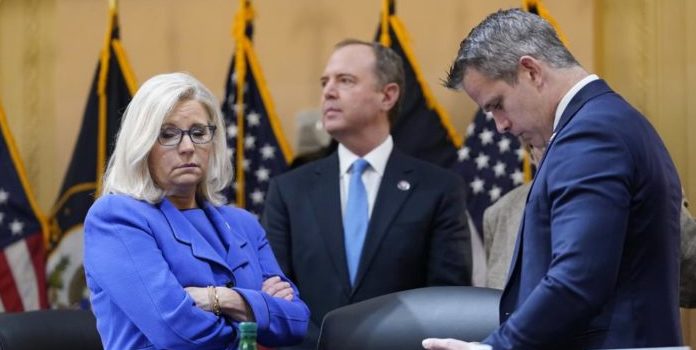(Joshua Paladino, Headline USA) TheHouse’s partisan Jan. 6 committee recommended that the Justice Department press charges against former President Donald Trump for incitement, obstruction, aiding an insurrection and conspiracy, but legal scholar Jonathan Turley called the investigation “a desecration of our constitutional process that harmed us all.”
The committee released the report and recommended serious criminal charges without presenting new evidence except a tape of former White House Communications Director Hope Hicks.
In the video, Hicks revealed that she told Trump to concede the election and to rescind his claims about election fraud.
Turley said the reliance on the Hicks tape shows the committee put “hope over experience.”
Rep. Adam Schiff, D-Calif., said that if the video is not criminal, “nothing is,” but Turley stated that the “opposite may be true from a First Amendment perspective.”
“If the failure to act is criminal, it is hard to see what would not be criminal under this standard,” Turley wrote in response to Schiff’s claim.
The January 6th Committee repeatedly promised to release a smoking gun that shows Trump’s collusion in a plot to overthrow the United States government, but instead it kept “rehashing previously known evidence.”
Committee Vice Chair Liz Cheney blamed Trump for failing to do enough to prevent protesters from entering the US Capitol, but House Speaker Nancy Pelosi failed to call on assistance.
“The fact is that the J6 Committee failed to change many minds largely because of what was on display in the final public meeting,” Turley wrote. “It was the same highly scripted, one-sided account repeated mantra-like for months.”
On MSNBC, the former acting Solicitor General Neil Katyal said Trump acted with “premeditation” and “criminal intent,” adding that the committee’s evidence is “very strong.”
But Turley noticed that all the claims focused on “what an official failed to do,” not premeditated actions.
“That is a far cry from evidence showing mens rea — ‘guilty mind.’ However, crimes generally require both guilty minds and guilty acts,” he wrote. “Building a criminal case on the failure to act to stop the violence is a notoriously difficult case to make.”

